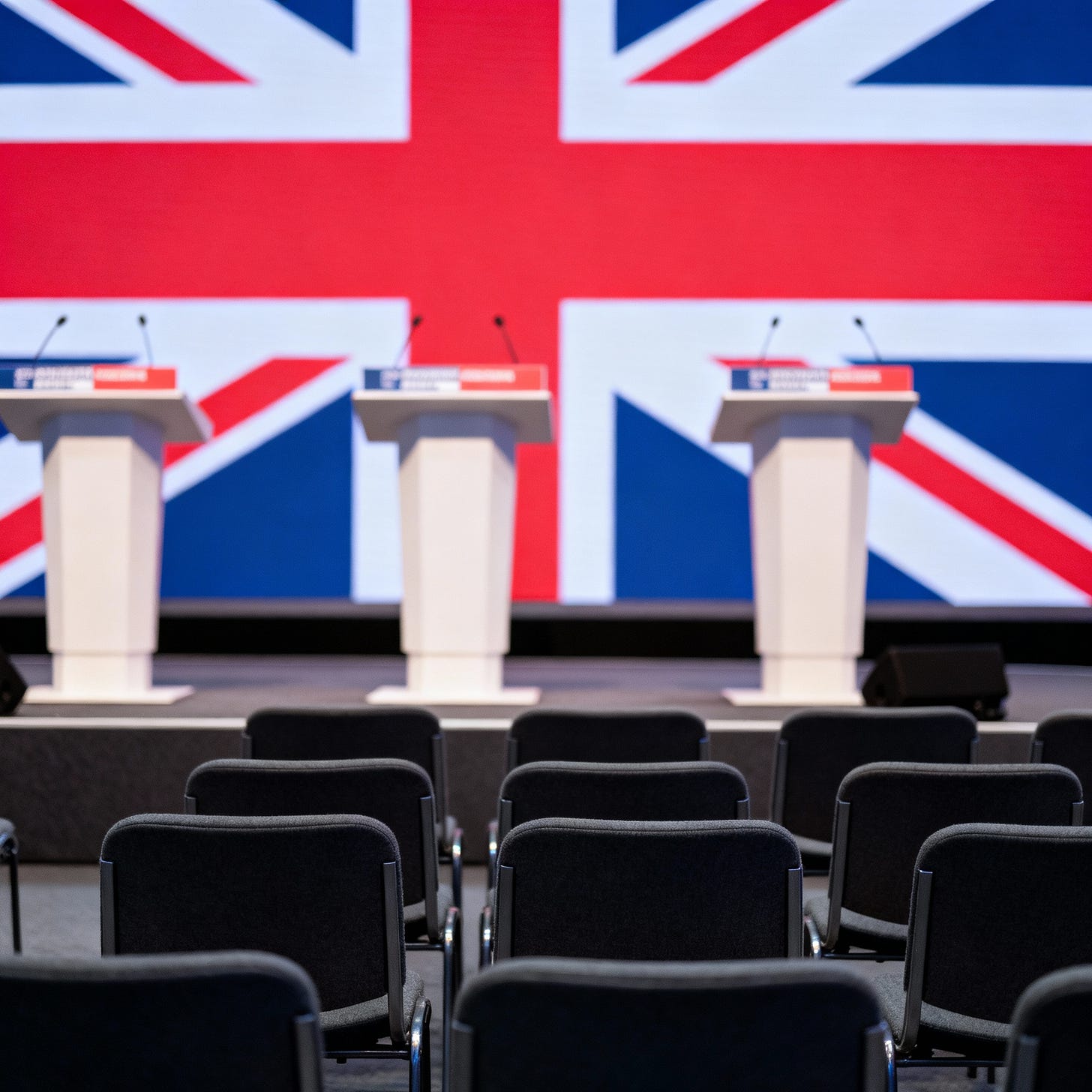Are Any of Our Political Parties Serious About Fixing Britain?
Please, please, please will one of our political parties get serious about the state of Britain.
As party conference season reaches its climax with Labour wrapping up in Liverpool, the Liberal Democrats having departed Bournemouth, and the Conservatives set to spend next week speaking about how long Kemi Badenoch will last as their Leader, it’s worth asking a fundamental question: is any major political party actually serious about fixing Britain’s dire fiscal situation? The answer, unfortunately, appears to be a resounding no.
For those who have read my posts before, you will know that the reality facing Britain is stark. The implication of the last Government Actuary’s Department review1 is that the UK will effectively default on its welfare spending commitments, including pensions, by 2043-44. It is universally agreed that public services are failing, and yet the tax burden has reached record levels - and it is set to increase further at the nightmare before Christmas Budget next month. Yet instead of confronting these realities, our political parties continue to engage in what can only be described as fiscal fantasy.
While much of the British public has worked hard and contributed to the system, whether that is through previously and currently paying taxes with the expectation of certain public services as a result or contributing for years to their pensions, the simple fact is that we cannot afford the welfare state and public services as they are, and even then, they work badly. We can either change course now or reality will force us to do so.
Labour: Tinkering at the edges
The Prime Minister and his Chancellor tried to make some tentative steps towards fiscal responsibility, with attempts to reform Personal Independence Payments and means-test the winter fuel allowance. While these certainly did not go far enough, they were a step in the right direction and yet these modest efforts have been met with fierce resistance from their own MPs. Over 100 Labour MPs have rebelled against PIP reforms, while the winter fuel payment cuts contributed to local election defeats, forcing a U-turn. Rachel Reeves now faces what the National Institute of Economic and Social Research has called an “impossible trilemma” - attempting to balance fiscal rules, spending commitments, tax promises, and a parliamentary party that refuses to countenance serious spending cuts.
At Labour’s conference, Reeves signalled potential tax rises and dismissed what she called “siren calls” for extra spending. Yet the party remains firmly committed to expensive promises—the triple lock, more NHS investment—and faces MPs unwilling to accept meaningful cuts. The numbers don’t stack up. With taxes already climbing, the country is left with stagnant productivity and dismal growth.
Reform UK: Good ideas sabotaged by bad economics
Focusing purely on their economic plans, Reform UK presents perhaps the most frustrating case study. Their tax plans show genuine promise - raising the personal allowance to £20,000, cutting corporation tax to 15%, and abolishing IR35. These measures could genuinely stimulate economic growth and simplify the tax system. Yet Reform systematically undermines these sensible reforms with economically destructive spending commitments.



